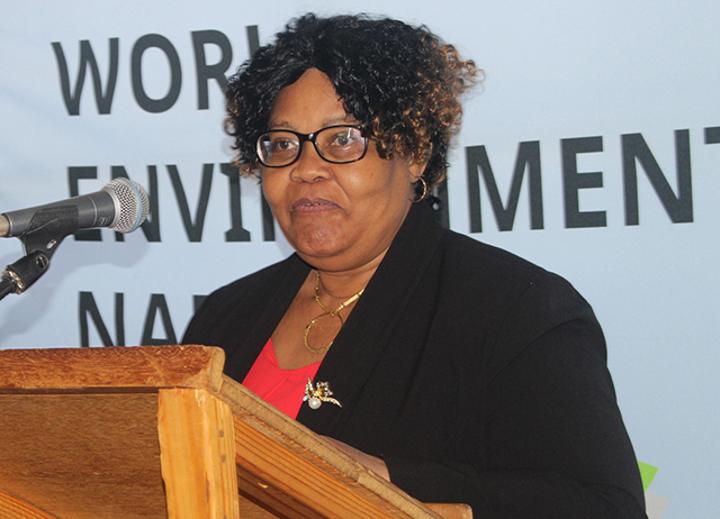Africa-Press – Namibia. WOMEN in Namibia continue to face limited access to media products and information and communications technology (ICT).
This was said by deputy minister of gender equality, poverty eradication and social welfare Bernadette Jagger at the official celebration of International Women’s Day at Swakopmund yesterday.
She said while International Women’s Day celebrates the progress that has been made towards women’s rights and gender equality, it’s important to acknowledge existing gender inequalities, which include gender-based violence (GBV), discrimination based on sex, and the gender pay gap.
This year’s theme, ‘DigitALL: Innovation and Technology for Gender Equality’, examines the digital gender gap’s effect on increasing economic and social inequality.
It emphasises the need to safeguard women’s and girls’ rights in digital spaces and tackle online and ICT-facilitated GBV, particularly against young girls.
Jagger said the second national gender policy aims to promote women’s access to information and communications technology and to eliminate negative stereotypes of women and girls.
The policy has adopted a number of strategies, including making all forms of ICT accessible to women and men in all parts of the country.
It also aimed to promote women’s representation in decision-making positions within the media industry, train journalists on gender-sensitive reporting, and to encourage media houses to adopt gender equality policies and measures.
Jagger said despite a notable increase in women taking up decision-making positions in Namibia’s media industry, gender gaps still exist.
The country scored 78% on the Media Sustainable Development Goals Index, compared to the regional average of 67%.
Women currently make up 40% of all media practitioners and 34% of media house managers, whereas they comprise 64% of media students.
“Despite women making up the majority of media students, they are underrepresented in employment and managerial positions in media houses,” she said.
Jagger said gender stereotypes, discrimination, and sexual abuse continue to be major barriers for women in the ICT industry.
She said women, particularly in rural areas, still face limited access to media products and ICT.
“As part of the global village . . . it is important that we put in place measures aimed at improving access to media, information, communication, and technology for women, girls, and people with disabilities . . . “ Jagger said.
She highlighted the potential of digital technology to address development and humanitarian challenges and achieve national development goals.
The digital revolution, however, presents the risk of perpetuating existing patterns of gender inequality and violence against women and children, she said.
Growing inequalities are becoming increasingly evident in the context of digital skills and access to technologies, with women being left behind as a result of this digital gender divide.
“Excluding women from the digital world could have significant costs as it puts the achievement of socio-economic development at risk,” she said.
International Women’s Day is a global event that focuses on women’s rights and gender equality.
For More News And Analysis About Namibia Follow Africa-Press






